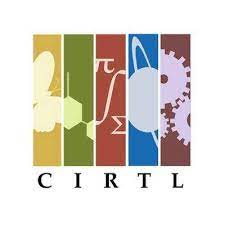Science is often considered a neutral, factual field immune to the inherent biases found in other fields, however, a talk given on Monday outlined how this isn’t the case.
Center for the Integration of Research, Teaching and Learning hosted the talk, Decolonizing Curriculum in STEAM. The talk featured Purdue University professor and director of the music therapy program Meganne Masko.
Masko defined three modes of colonialism — external, internal and settler. These modes all involve disrupting — and in most cases removing — Indigenous people and their resources from their land in order to benefit colonizers.
The three modes also reinforce and build off of each other, Masko said.
While the field of STEAM education may seem removed from the historical occupation and seizure of land, Masko said it is actually a way colonizers continue to exert control over occupied people.
The origins of this oppression date back to ancient Greece, Masko said. The philosopher Pythagoras is largely credited as the ancestor of modern STEAM concepts, despite the fact none of his writings have been recovered. Further along in Greek philosophy, Aristotle, well known for his beliefs about human flourishing, developed the concept of slavery as we know it today.
Aristotle’s influence regarding the idea of human hierarchy reached the work of renowned scientists Robert Boyle and Isaac Newton.
“Boyle made physics a tool of white supremacy by supposedly proving white to be naturally the top-most color,” Masko said. “Isaac Newton wrote about whiteness as a perfection and the center of his color wheel. All other colors exist in relationship and subservience to white.”
Masko said she, like many students, saw this color wheel and memorized Boyle’s and Newton’s laws in school without any knowledge of their contributions to enslavement and white supremacy.
Masko said science is often able to perpetuate colonized practices and beliefs because it is considered a morally neutral discipline. She cited an essay called “Curious about George: Postcolonial Science and Technology Studies, STEM education policy, and colonial iconicity” written by Rae Lynn Schwartz-DuPre and Helen Morgan Parmett.
“The belief that science is moral, rational, universal and value free and ideologically neutral makes it difficult to dispute and, as such, provides a shield for the historical construction of racist beliefs and representations,” Masko said, quoting Shwartz-DuPre and Parmett.
After outlining the problems with colonized STEAM curriculum, Masko defined the process of decolonizing education as active resistance against colonized ideas and shifting power towards political, economic, educational and cultural independence of the indigenous ideas of colonized people.
Masko said part of this process is recognizing the barriers that exist in STEAM education. For success in these programs, students need to have had a school with resources to provide high level STEAM courses, or a means of accessing these resources another way.
Additionally, considering there are multiple ways to engage students and that there are multiple ways things can be known is valuable for decolonizing STEAM concepts.
“Revolutionary indigenous knowledge is as valuable and is often the unacknowledged basis for Western ideas,” Masko said. “We as a faculty do our best to find those connections and make them apparent for students. For example, Maslow’s hierarchy of needs is a colonized version of Blackfoot nation beliefs.”
Masko said expanding the types of information used to teach students gives them access to points of view they have never considered before.


